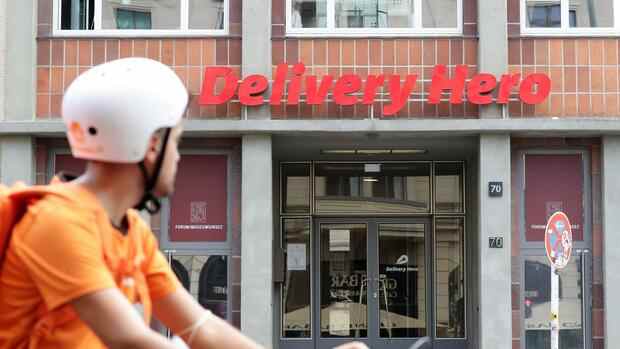Doubts about the business model.
(Photo: EPA-EFE)
Meta, better known as Facebook, has lost around a third of its value since the beginning of the year. Delivery Hero recently plummeted by around a fifth in one day and later slipped even further. According to good figures, Apple, on the other hand, increased its stock market valuation by a good 180 billion dollars, and Amazon even by around 190 billion. The examples show that things are getting uncomfortable, but also exciting on the stock exchange.
But that’s how it should be. Shareholders are the owners of companies. Their function in the capitalist system is to bear entrepreneurial risks, for which they are rewarded with corresponding opportunities. The overflowing liquidity of the central banks has at least partially covered these risks for too long. It’s over. Add to that the popularity of exchange-traded funds (ETFs): while a good invention in their own right, they can help to distance companies from their owners and drive prices more on the big money glut than compelling earnings.
Doubts about the business model
Doubts about the business models played an important role in the Meta and Delivery Hero crashes. Do the Berlin food heroes really manage to build up such a strong market position with losses that they can later earn good money? And is the Metaverse, the virtual world of Facebook, really a money machine or is it more of a fantasy in business terms?
Until recently, weaknesses in business models were more easily overlooked. People trusted that there was enough money that the other brokers would also buy, that things would go well. That’s over too. Companies have to prove again that they make good use of capital, they no longer get it as a gift. Once again: that’s a good thing. Ultimately, a healthy capitalism returns.
Top jobs of the day
Find the best jobs now and
be notified by email.
Is the new uncertainty a signal to withdraw from equities? Certainly more caution is required. But real withdrawal might be a bad decision. Because anyone who invests in corporate bonds, real estate or investment funds (private equity), for example, cannot avoid entrepreneurial risk. And if you don’t want to take any risks and buy solid government bonds, for example, you will still make losses in real terms for the foreseeable future, i.e. after deducting inflation, despite the turnaround of the central banks. Capitalism thrives on the willingness to take risks. The shareholders also more again.
More: Against the turnaround in interest rates with equities from emerging countries
